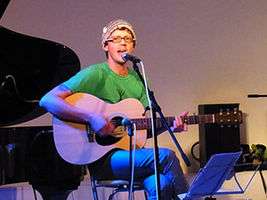
Peace
Peace is between different social groups and characterized by lack of violence or conflict behaviors, and the freedom from fear of violence. Commonly understood as the absence of hostility and retribution, peace also suggests sincere attempts at reconciliation, the existence of healthy or newly healed interpersonal or international relationships, prosperity in matters of social or economic welfare, the establishment of equality, and a working political order that serves the true global interests.
Etymology
The term 'peace' originates most recently from the Anglo-French pes, and the Old French pais, meaning "peace, reconciliation, silence, agreement" (11th century). But, Pes itself comes from the Latin pax, meaning "peace, compact, agreement, treaty of peace, tranquility, absence of hostility, harmony." The English word came into use in various personal greetings from c.1300 as a translation of the Hebrew word shalom, which, according to Jewish theology, comes from a Hebrew verb meaning 'to restore'. Although 'peace' is the usual translation, however, it is an incomplete one, because 'shalom,' which is also cognate with the Arabic salaam, has multiple other meanings in addition to peace, including justice, good health, safety, well-being, prosperity, equity, security, good fortune, and friendliness. At a personal level, peaceful behaviors are kind, considerate, respectful, just, and tolerant of others' beliefs and behaviors — tending to manifest goodwill.
At Peace
At Peace (stylised as @peace) was a New Zealand hip hop group. The group comprised lyricist and vocalist Tom Scott, also of the hip-hop group Home Brew; lyricist and vocalist Lui Tuiasau, formerly of hip-hop duo Nothing To Nobody; and producers Christoph El Truento, Dandruff Dicky and B Haru.
At Peace released three albums between 2012 and 2014 before the group's breakup in 2015. In 2014 they released a song which included lyrics threatening to kill John Key and have sex with his daughter.
Discography
References
External links

J. C. Schütz
Johan Christher Schütz is a Swedish singer, songwriter, music producer and multi-instrumentalist. In 2010 he also introduced the side-project Peacebird.
Schütz has released five albums; four under his own name and one album as Peacebird. He has also written musicals and composed instrumental music for short films. He has done four Japan tours, the first in 2007. As of 2012, 85% of his songs are continuously being played in radio or TV, mainly in Europe and Japan, but also in North and South America. In reviews, Schütz is often referred to as a "genius" or "champion" singer/songwriter.
Biography
Raised outside the small town of Mjölby, Östergötland he started singing and playing musical instruments, such as drums and electric organ, very early. Aged seven, he found a guitar in a trash container, an experience that he says changed his life, as he decided to dedicate his life to music. During a period in 1999 he was living in London on a songwriting grant from STIM (Swedish copyright collecting society) where he wrote songs and performed live in acoustic clubs several times a week, something he says was very important to improve his stage presence and performance quality, and after returning to Sweden the newspaper Östgöta Correspondenten wrote in a review of one of his live performances in 2001 that he had become "a mature artist".

Millipede memory
Millipede memory is a non-volatile computer memory stored on nanoscopic pits burned into the surface of a thin polymer layer, read and written by a MEMS-based probe. It promised a data density of more than 1 terabit per square inch (1 gigabit per square millimeter), which is about the limit of the perpendicular recording hard drives. Millipede storage technology was pursued as a potential replacement for magnetic recording in hard drives, at the same time reducing the form-factor to that of flash media. IBM demonstrated a prototype millipede storage device at CeBIT 2005, and was trying to make the technology commercially available by the end of 2007. However, because of concurrent advances in competing storage technologies, no commercial product has been made available since then.
Technology
Basic concept
The main memory of modern computers is constructed from one of a number of DRAM-related devices. DRAM basically consists of a series of capacitors, which store data as the presence or absence of electrical charge. Each capacitor and its associated control circuitry, referred to as a cell, holds one bit, and bits can be read or written in large blocks at the same time. In contrast, hard drives store data on a disk that is covered with a magnetic material; data is represented as local magnetisation of this material. Reading and writing are accomplished by a single head, which waits for the requested memory location to pass under the head while the disk spins. As a result, the drive's performance is limited by the mechanical speed of the motor, and is generally hundreds of thousands of times slower than DRAM. However, since the "cells" in a hard drive are much smaller, the storage density is much higher than DRAM.
Millipede (disambiguation)
A millipede is a myriapod with two pairs of legs on most segments.
"Millipede" may also refer to:
See also
Podcasts:

